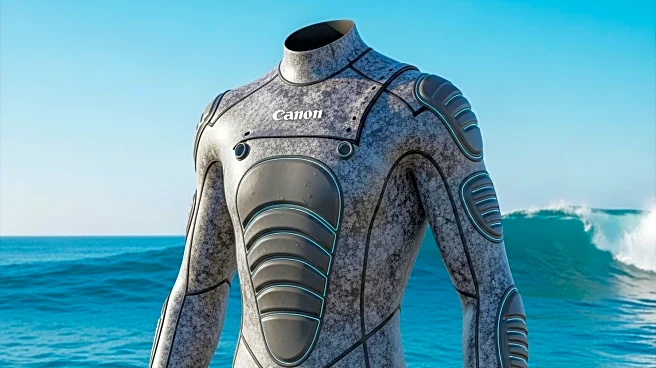What's Happening?
Researchers from Flinders University's Southern Shark Ecology Group have tested four bite-resistant materials to assess their effectiveness in reducing injuries and blood loss from shark bites. The study, funded by the NSW Department of Primary Industries and Regional Development Shark Management Program, evaluated materials such as Aqua Armour, Shark Stop, ActionTX-S, and Brewster material. These materials aim to provide protection against bites from white and tiger sharks, which are responsible for the most unprovoked bites globally. The new wetsuits incorporate strong and light fibers, offering flexibility and protection suitable for recreational activities like surfing and diving. The study found that these materials significantly reduced substantial and critical damage compared to standard neoprene wetsuits, potentially saving lives by minimizing blood loss and trauma from major lacerations and punctures.
Why It's Important?
The development of bite-resistant wetsuits represents a significant advancement in non-lethal shark-bite mitigation strategies. As interactions between humans and sharks increase due to expanding coastal populations and the popularity of marine activities, there is a growing need for effective personal protective measures. These wetsuits could reduce fatalities from shark bites by decreasing the severity of injuries, thus enhancing safety for individuals engaged in water-based tourism and recreation. The study's findings enable informed decisions regarding the use of these materials for both occupational activities and public use, potentially benefiting coastal communities and businesses reliant on marine tourism.
What's Next?
The study's results may lead to increased adoption of bite-resistant wetsuits among recreational and professional divers, surfers, and other marine enthusiasts. As awareness of these protective measures grows, manufacturers may further innovate and improve the materials used in wetsuits to enhance their effectiveness. Additionally, governments and coastal management agencies might consider integrating these personal protective measures into broader shark-bite mitigation strategies, complementing area-based protection efforts. The ongoing shift towards non-lethal alternatives could also spur further research into other personal deterrents and mitigative measures.
Beyond the Headlines
The introduction of bite-resistant wetsuits highlights a broader trend towards non-lethal shark-bite mitigation strategies, reflecting ethical considerations in wildlife management. This approach aligns with increasing public and governmental interest in preserving marine ecosystems while ensuring human safety. The study also underscores the importance of interdisciplinary collaboration between researchers, government agencies, and industry stakeholders in developing innovative solutions to complex environmental challenges.









